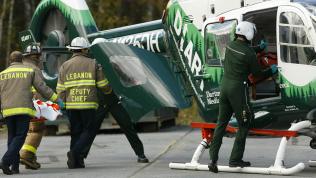Our core rotation schedule is designed to give fellows a balanced and meaningful experience in all the critical care disciplines. These core rotations are filled with fellows from the Critical Care Medicine, Critical Care Anesthesia, and Pulmonary/Critical Care Medicine programs. Rotations in the Medical Intensive Care Unit (MICU) are split evenly between two teams: one team comprised of residents, interns, and students; and a second team comprised of associate providers and associate provider critical care residents.
These teams care for patients with a wide variety of complex medical critical illness. Rotations in the surgical intensive care unit (SICU) are dedicated to critical care teams made up of residents and interns from a variety of programs and critical care associate providers. These teams care for trauma patients and patients with complex post-operative illness.
Fellows assigned to MICU and SICU rotations also take call to admit patients to these two units every third day. Fellows are also assigned rotations in the Neuro-Critical Care Unit, where they care for patients with the full spectrum of neurological and neurosurgical critical illness, and the Cardiovascular Critical Care Unit where they care for patients with complex arrhythmias, advanced heart failure and cardiogenic shock, and patients following interventional cardiac and cardiothoracic surgical procedures.
A key component of our fellowship experience is our night coverage rotation. Our goal for this rotation is to provide a supported environment in which the fellows can take increasing amounts of responsibility for complex decision-making. This rotation is split between two fellows who each cover half the nights in a schedule block. Fellows assigned to night coverage are responsible for triaging and admitting patients to both the MICU and the SICU with the support of a combination of in-house attending physicians and tele-ICU providers. They are also responsible to help resident and associate provider teams manage existing patients in both units. This rotation is generally seen by fellows as an invaluable opportunity to develop independence as a critical care provider and to develop skills in managing a large and complex system of units and teams.
Fellows who are not assigned to a core rotation or night rotation are free to schedule an elective experience.
